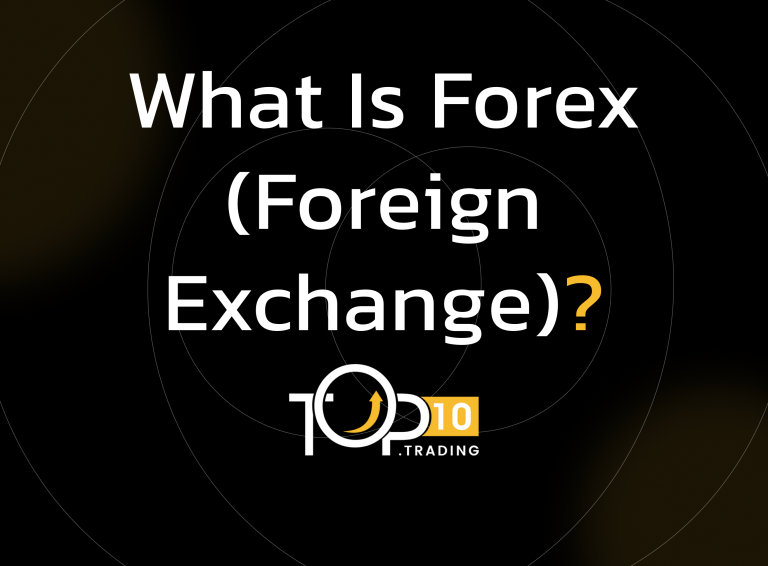Forex Definition

Forex, short for foreign exchange and often abbreviated as FX, is the global marketplace where participants buy, sell, and exchange currencies. It is the largest and most liquid financial market in the world, with an average daily trading volume of about $7.5 trillion as of 2022.
Key Takeaways
- Forex (foreign exchange) is the global, decentralized market for trading currencies in pairs.
- It is the largest and most liquid financial market, operating 24/5 across major financial centers.
- Currency prices fluctuate based on economic, political, and market factors.
- Forex trading involves buying one currency while selling another, with no physical exchange of money.
- The market offers opportunities for speculation, hedging, and international business transactions but carries risks related to volatility and leverage.
How Forex Works
Forex trading involves the simultaneous buying of one currency and selling of another, always quoted in pairs (e.g., EUR/USD, GBP/JPY). The price of a currency pair reflects how much of the quoted currency (second currency) is needed to buy one unit of the base currency (first currency). For example, if EUR/USD is 1.10, it means 1 euro costs 1.10 U.S. dollars.
Unlike stock markets, the forex market is decentralized and operates over-the-counter (OTC) through electronic networks connecting banks, brokers, institutions, and individual traders worldwide. It runs 24 hours a day, five days a week, opening Sunday evening and closing Friday evening (ET), covering major financial centers like London, New York, Tokyo, and Singapore.
Key Features of Forex
- Largest Financial Market: Forex dwarfs other markets in size and liquidity, with trillions traded daily.
- Currency Pairs: Trading always involves pairs, reflecting the relative value between two currencies.
- Decentralized Market: No central exchange or governing body; trading occurs electronically across global networks.
- 24-Hour Trading: Continuous trading allows participants to react instantly to global events.
- Leverage: Forex brokers often offer leverage, enabling traders to control large positions with smaller capital, increasing both potential profits and risks.
- Market Influences: Exchange rates fluctuate based on economic growth, inflation, interest rates, political stability, and market sentiment.
Participants in the Forex Market
- Banks and Financial Institutions: Major players providing liquidity.
- Corporations: Engage in forex to hedge currency risk related to international trade.
- Governments and Central Banks: Influence currency values through monetary policy.
- Individual Traders and Investors: Speculate on currency movements to profit from price changes.
Types of Forex Trading
- Spot Market: Immediate currency exchange at current market prices.
- Forward and Futures Contracts: Agreements to exchange currencies at a future date and predetermined price, used for hedging or speculation.
- Options: Contracts giving the right, but not obligation, to exchange currencies at a set price before expiration.
Risks and Benefits
- Liquidity and Flexibility: High liquidity allows easy entry and exit; 24-hour trading offers flexibility.
- Volatility: Currency prices can be highly volatile, creating profit opportunities but also significant risks.
- Leverage Risks: While leverage can amplify gains, it also magnifies losses.
- No Physical Exchange: Forex trading is purely electronic; no physical currency changes hands.
Understanding forex is essential for traders and investors looking to participate in global currency markets, manage currency risk, or capitalize on price movements driven by worldwide economic dynamics.
